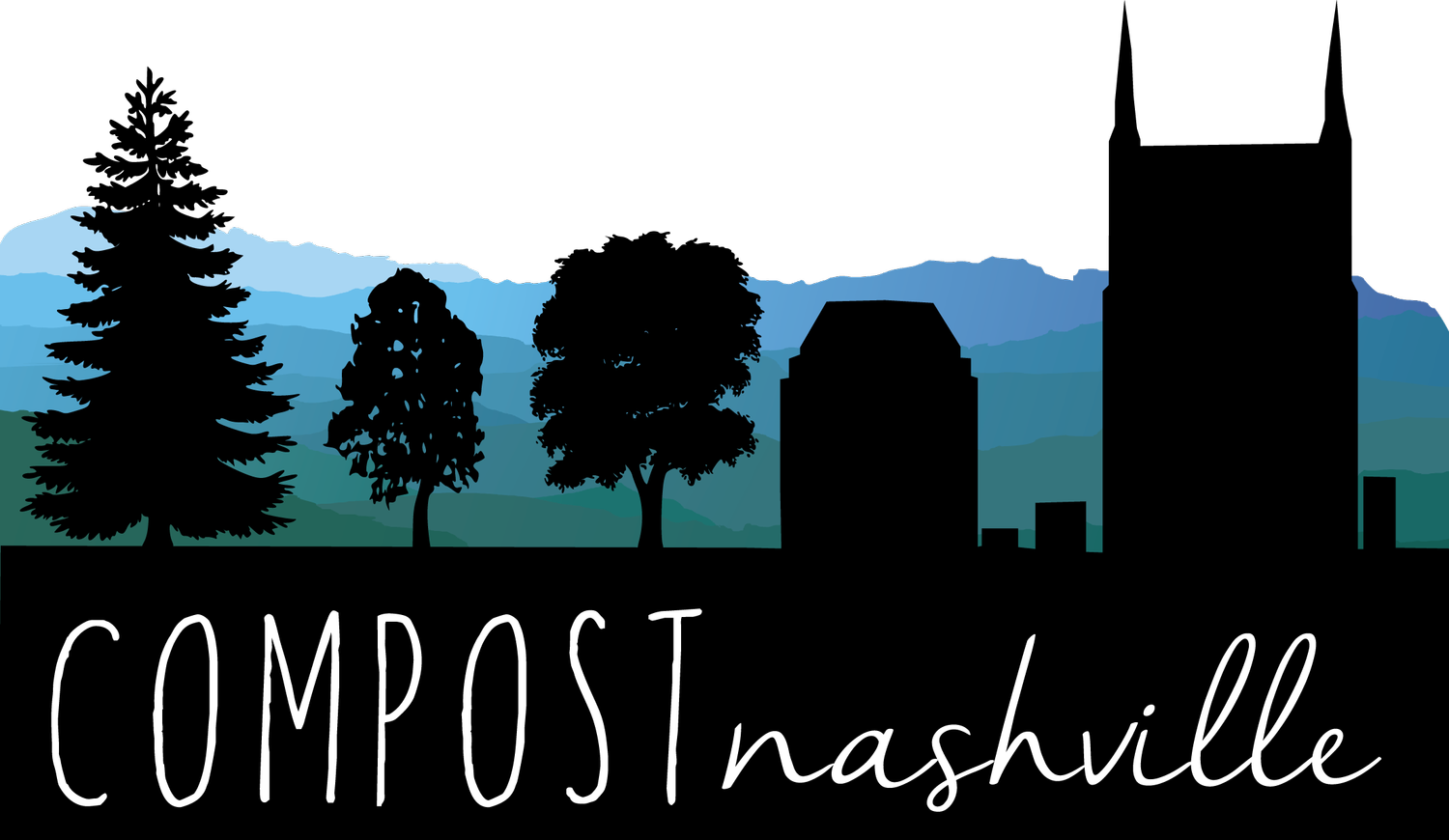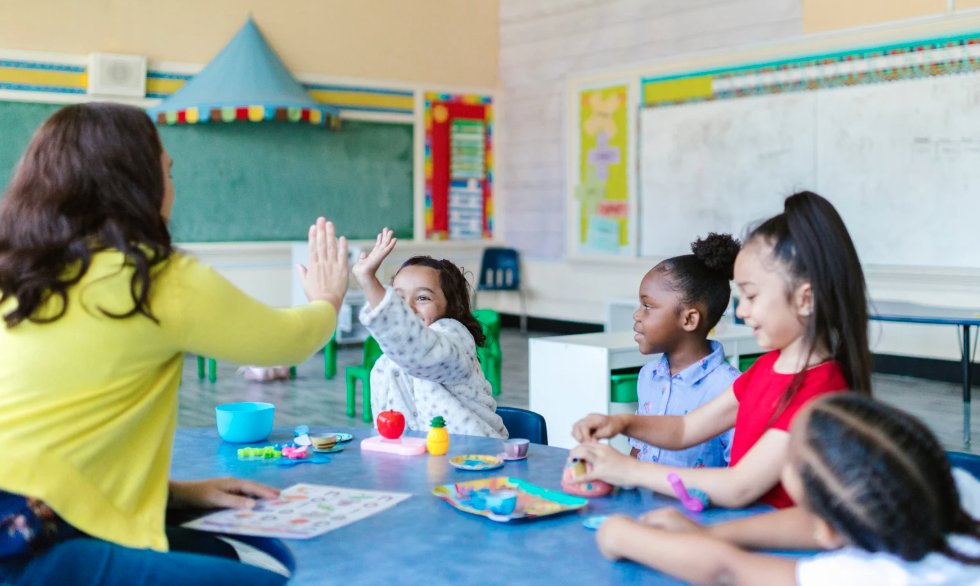Composting At School
As more schools strive to become sustainable and recognize the amount of food waste in their cafeterias, educators, facilities staff, parents, and administrators are seeking ways to reduce waste and ensure that food doesn’t end up in landfills. Composting can be a great way to reduce food waste, teach about the food cycle, and prevent methane emissions. Several schools in Tennessee, like Rosebank, J.E. Moss, Granberry, and Julia Green, have successful composting programs in place, so we set out to determine what works, what doesn’t, and how composting can become more accessible for other schools in the process.
What does composting at school entail?
There are a few different ways that schools can start composting. From having one compost bucket in your classroom to implementing a school-wide program with facilities staff and parental volunteers, there are a variety of ways to engage in composting at school.
To have a successful school-wide program, having support from the principal and parents/volunteers to help with the logistics and funding is incredibly helpful.
If you don’t have that level of administrative support, you can still begin composting in one or two classrooms.
Schools focused on STEAM education can include composting in the curriculum to fully immerse students in the importance of composting, understanding what happens to food waste, and getting a better picture of where food comes from and how compost helps to grow it.
Starting a School-Wide Composting Program
Compost Nashville has partnered with a number of schools to help launch successful, school-wide composting programs. One standout example is Rosebank Elementary, where students and staff diverted an impressive 13,775 pounds of food waste from the landfill in just one school year. We caught up with members of their Parent-Teacher Association to gather some valuable insights and practical tips for starting a composting program at your school.
Stir Up Interest: Have a local composting organization, like Compost Nashville, talk to the PTA about composting and the positive impact it can have on kids and the environment. To find a composter in your area, check out this resource.
Get Administrative Approval: Work with the principal to make sure they approve the program and show that it is in alignment with school goals. This can be accomplished more easily if there is a STEAM program at the school.
Estimate Needs: Estimate the amount of material you are producing and how many bins you may need. We recommend a formula of one 65-gallon container for every 80 students. So if you have a school with 380 students, you would want to have about 5 containers.
Seek Funding: Work out funding within the PTA budget, school budget, and/or external grants.
In Tennessee, the Tennessee Department of Environment and Conservation has allotted grant funding for organics management, which includes composting. Learn more about this grant opportunity here.
Educate: Provide education and communication to facilities staff, educators, and volunteers leading up to the program to ensure everyone is on board and to lessen what could be a steep learning curve for those unfamiliar with composting. Send flyers home to parents so they know what can and can’t be composted, and so they are aware that the program is taking place
Use Compost Nashville’s free Composting Program Powerpoint to present the program to volunteers and staff
Implement: For the first 6 weeks of the program, it is helpful to have volunteers on-site during cafeteria hours to help with sorting material and guiding kids through the waste stations so they learn what belongs in compost, trash, and/or recycling. Also, have signage in the cafeteria with images of what belongs in each bin.
Starting Small In the Classroom
We recognize that not every school has the resources and capabilities to implement a school-wide program right away, but that doesn’t mean you can’t start somewhere to get more interest and divert some food waste away from landfills. There are a few teachers in Nashville who bring 4-gallon buckets into their classrooms and allow students to compost snacks, leftovers, etc. They then compost those leftovers at home, bring them to a community drop-off, or have the scraps collected through a residential service. While more material will be composted in a school-wide program, there is always an option to start small if the resources aren’t available for a school-wide program right now.
What Happens to the Food Waste that is Composted?
When you compost at school, you will likely partner with a composting company in your area. That organization will be responsible for collecting bins full of food scraps, cleaning them for you, and producing finished compost.
Some composting companies will provide the option to receive finished compost to use in a school garden or to donate to a local farm. When you’re having food waste composted instead of landfilled, that material is getting a second use as a much-needed soil amendment chalk-full of nutrients to help grow the next generation of plants.
With schools wasting up to 40lbs of food per student, there is a huge impact that they can have. For example, Rosebank Elementary composted over 13,775 pounds of food waste in the first year of the program. This prevented 661 pounds of methane from entering the atmosphere and created 4,500 pounds of compost that can be used in local farms and community gardens.
If you have questions about starting a program or helpful tips that have worked for your school, let us know! Reach out to Info@CompostNashville.org or call (615) 398-0209.
Sources & Additional Resources:
Thank you to Christi G., Brooke R., and Kate R., with Rosebank PTA for your helpful insights!
The Environmental Value of Applying Compost
Get Food Smart TN: Food Waste in Schools
Cornell Waste Management Institute Report on School Composting





